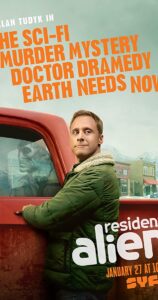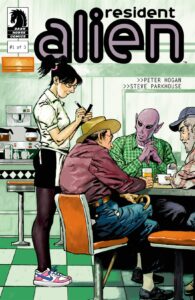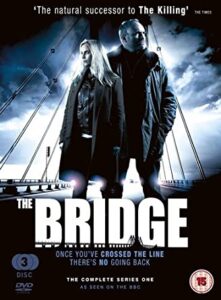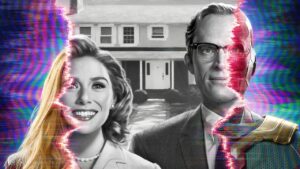Confession: We do not have cable television in our home and have not had it for close to eight years. Everything my sweetie-wife and I watch is either streamed or on disc so when a new show premiers on a cable channel we either have to wait for its arrival on a streaming service or  if it’s something we have high expectation of enjoying buying an entire season to stream. Which is what we did for SyFy Channel’s original series Resident Alien.
if it’s something we have high expectation of enjoying buying an entire season to stream. Which is what we did for SyFy Channel’s original series Resident Alien.
Resident Alien adapted from a comic book series by Peter Hogan and Steve Parkhouse stars Alan Tudyk as an alien who has come to Earth on a deadly mission but due to a mishap and crash has assumed the identity of Doctor Harry Vanderspeigle in the small, isolated community Patience Colorado and finds himself embroiled in murder investigations, family dramas, romantic entanglements, and the mission of a young boy to expose the truth of alien  presence. The show is a mixture of comedy and drama with the balance clearly tilted towards the comedic as Patience is populated with an assortment of quirky, broadly sketched, farcical characters that live with one foot in realistic human emotions and the other firmly planted in broad comedy.
presence. The show is a mixture of comedy and drama with the balance clearly tilted towards the comedic as Patience is populated with an assortment of quirky, broadly sketched, farcical characters that live with one foot in realistic human emotions and the other firmly planted in broad comedy.
Tudyk is one of our best working comedic actors with a career that stretched from A Knights Tales, thru firefly/Serenity up to and past Rouge One: A Star Wars Story. He brings a real charm and sense of timing that carries the comedy off quite well and his choices in his performance particularly when we can compare it against his performance as the human version of the character are unique.
Mixing drama and comedy doesn’t work for everyone but in my opinion, it’s flying high here in Resident Alien.
Resident Alien airs on Syfy on Wednesday nights and is available to purchase from a number of platforms.







